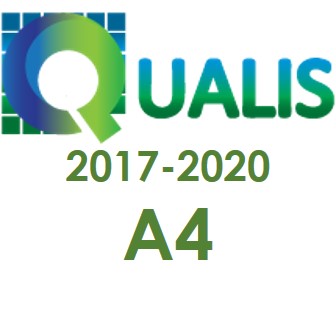Teoria Fonológica e Variação Lingüística (Phonological Theory and Language Variation)
DOI:
https://doi.org/10.22481/el.v3i1.1008Palavras-chave:
Teoria Fonológica, Variação lingüística, Percepção, Produção, OTResumo
As análises lingüísticas têm exibido, majoritariamente, desde o estruturalismo, uma inclinação por modelos de produção. Pouca atenção tem sido dada à percepção. Além disso, a variação lingüística não tem sido a preocupação maior dos modelos teóricos propostos. Na verdade, ela tem sido excluída da maioria deles. Recentemente a teoria fonológica vem se ocupando da variação lingüística, mas, novamente, pendendo pela produção (na maioria das vezes) ou pela percepção. O que se pretende, aqui, é oferecer um esboço de modelo teórico que seja capaz, a partir da junção da produção com a percepção, de lidar com os fatos da variação. O modelo, operacionalizável em termos dos mecanismos da Teoria da Otimalidade, pretende, com base em princípios mais gerais da língua, alocar a variação num nível abstrato (percepção) e deixar a sua implementação (produção), no uso, sensível ao par {indivíduo-item lexical}.
PALAVRAS-CHAVE: Teoria Fonológica. Variação lingüística. Percepção. Produção. OT.
ABSTRACT
Linguistic analyses have shown, beginning with the structuralist school, a major tendency towards production models, with little attention to perception. Besides this, linguistic variation has not been one of the main subjects of these theoretical models; in fact it has been excluded from most of them. It is only recently that phonological theory has turned its attention to linguistic variation but, again, either to production, most of the time, or to perception, in a few cases. It is our goal here to draw an outline of a theoretical model which is capable to deal with the facts of variation from the standpoint of production and perception. This model, which can be formalized in terms of the OT apparatus, and on the basis of general principles of the language, intends to allocate variation to an abstract level (perception) and let its implementation (production), in language use, sensitive to the pair {individual-lexical item}.
KEYWORDS: Phonological theory. Variation. Perception. Production. OT.
Downloads
Referências
ANTTILA, A.; CHO, Y. Y. Variation and change in Optimality Theory. Lingua, n. 104, p. 31-56, 1998.
BAKOVIÆ, E.; KEER, E. Optionality and ineffability. In: LEGENDRE, Géraldine; GRIMSHAW, Jane; VIKNER, Sten. (Ed.). Optimality Theoretic Syntax. Cambridge: MIT Press, 2001. Also available as ROA 384-03100.
BLOCH, B. A set of postulates for phonemic analysis. Language, n. 24, p. 3-46, 1948.
BLOOMFIED, L. A set of postulates for the science of language. Language, n. 2, p. 153-164, 1926.
BLOOMFIED, L. Language. New York: Holt, Rinehart & Winston, 1933.
BOERSMA, P. How we learn variation, optionality, and probability. PROCEEDINGS OF THE INSTITUTE OF PHONETIC SCIENCES OF THE UNIVERSITY OF AMSTERDAM, 21., p. 43-58, 1997.
BOERSMA, P.; HAYES, B. Empirical tests of the gradual learning algorithm. Linguistic Inquiry, n. 32, p. 45-86, 2001.
BROIHIER, K. Optimality Theoretic Rankings with Tied Constraints: Slavic Relatives, Resumptive Pronouns and Learnability. Cambridge, Mass.: M.I.T. Press, 1995. [ROA-46].
CÂMARA JR., J. M. Introdução às Línguas Indígenas Brasileiras. Rio de Janeiro: Livraria Acadêmica, 1965.
CÂMARA JR., J. M. Estrutura da Língua Portuguesa. Petrópolis: Vozes, 1970.
CHOMSKY, N. Aspects of the theory of syntax. Cambridge, Mass.: M.I.T. Press, 1965.
COETZEE, A. W. What it Means to be a Loser: Non-Optimal Candidates in Optimality Theory. University of Massachusetts: Ph.D., 2004.
COETZEE, A. W. Variation as Accessing “Non-Optimal” Candidates – A Rank-Ordering Model of EVAL. Draft. University of Michigan, 2005.
GUMPERZ, J. J. Social meaning in linguistic structures: code-switching in Norway. In: DIL, Anwar S. (Ed.). Language in social groups. Stanford: Stanford University Press, 1971. p. 274-310.
HAMMOND, M. An OT account of variability in Walmatjarri stress. Manuscript, University of Arizona and ROA, 1994.
HOENIGSWALD, H. The Annus Mirabilis 1876 and posterity. Transactions of the Philological Society, p. 17-35, 1978.
HYMES, D. H. Foundations in sociolinguistics. Philadelphia: University of Pennsylvania Press, 1972.
JONES, D. The theory of phonemes, and its importance in practical linguistics. In: PROCEEDINGS [FIRST] INTERNATIONAL CONGRESS OF PHONETIC SCIENCES, p. 18-22, 1932.
JONES, D. The phoneme, its nature and use. Cambridge: W. Heffer & Sons, Ltd., 1950.
KAGER, R. Ternary Rhythm in Alignment Theory, ms, Utrecht University, 1994. [ROA-35].
KAGER, R. Optimality Theory. Cambridge: Cambridge University Press, 1999.
LEE, S. H. Sobre as vogais pré-tônicas no Português Brasileiro. Texto apresentado no 53o Seminário do GEL. UNESP-São Carlos, 2005.
LEE, S. H.; OLIVEIRA, M. A. de. Variação Inter- e Intra-Dialetal no Português Brasileiro: Um Problema para a Teoria Fonológica. In: OLIVEIRA, D. da H.; COLLISCHONN, G. (Org.). Teoria Lingüística: fonologia e outros temas. João Pessoa: Universitária, 2003. p. 67-91.
McCARTHY, J.; PRINCE, A. Faithfulness and reduplicative identity in Prosodic Morphology. In: DICKEY, Beckman; URBANCZYK, S. (Ed.). Papers in Optimality Theory. Amherst, MA: GLSA. 1995. p. 249-384.
McCARTHY, J. Introductory OT. On CD-ROM. Version 1.0. GLSA. Amherst, 1999.
McCARTHY, J. A Thematic Guide to Optimaluty Theory. Cambridge: Cambridge University Press, 2002.
OLIVEIRA, M. A. The neogrammarian controversy revisited. International Journal of the Sociology of Language, Berlin, n. 89, p. 93-105, 1991.
OLIVEIRA, M. A. Aspectos da difusão lexical. Revista de Estudos da Linguagem, Belo Horizonte: Fale/UFMG, n. 1, p. 31-41, 1992.
OLIVEIRA, M. A. O léxico como controlador de mudanças sonoras. Revista de Estudos da Linguagem, Belo Horizonte: Fale/UFMG, n. 4, p. 75-91, 1995.
PATER, J. Non-convergence in the GLA and variation in the CDA. Ms, UMASS, 2005. [ROA-780].
PESETSKY, D. Principles of Sentence Pronunciation. Ms, MIT, 1995. [ROA-42].
PRINCE, A.; SMOLENSKY, P. Optimality Theory: constraints Interaction in Generative Grammar. Report No. RuCCS-TR-54. New Burnswick, NJ: Rutgers University Center for Cognitive Science, 1993.
RIGGLE, J.; WILSON, C. Local Optionality. Handout from NELS 35. University of Connecticut, 2005.
SAUSSURE, F. de. Cours de linguistique générale. Paris: Payot, 1916.
TESAR, B.; SMOLENSKY, P. Learnability in Optimality Theory. Linguistic Inquiry, n. 29, p. 229-268, 1998.
TEYSSIER, P. História da Língua Portuguesa. Lisboa: Livraria Sá da Costa Editora, 1984.
VAUX, B. Iterativity & Optionality Rough text of oral version read at NELS. Milwaukee: University of Wisconsin, 2002.
VAUX, B. Why the phonological component must be serial and rule-based. Rough draft. University of Wisconsin-Milwaukee, 2006.
WEINREICH, U.; LABOV, W. HERZOG, M. Empirical foundations for a theory of language change. In: LEHMANN, W. P.; MALKIEL, P. (Ed.). Directions for historical linguistics. Austin: University of Texas Press, p. 85-195, 1968.
ZUBRITSKAYA, K. Markedness and sound change in OT. In: BECKMAN, J. PROCEEDING OF THE NORTH EAST LINGUISTIC SOCIETY, 25. Amherst, MA: GLSA, p. 249-264, 1995.
Downloads
Publicado
Como Citar
Edição
Seção
Licença
Autores que publicam em Estudos da Língua(gem) concordam com os seguintes termos:
Estudos da Língua(gem) mantém os direitos autorais das contribuições publicadas e disponibiliza seu conteúdo gratuitamente por meio do portal. Autores têm permissão e são estimulados a publicar e distribuir seu trabalho online em repositórios institucionais ou na sua página pessoal, com reconhecimento de autoria e créditos de publicação inicial nesta revista, indicando endereço online.












